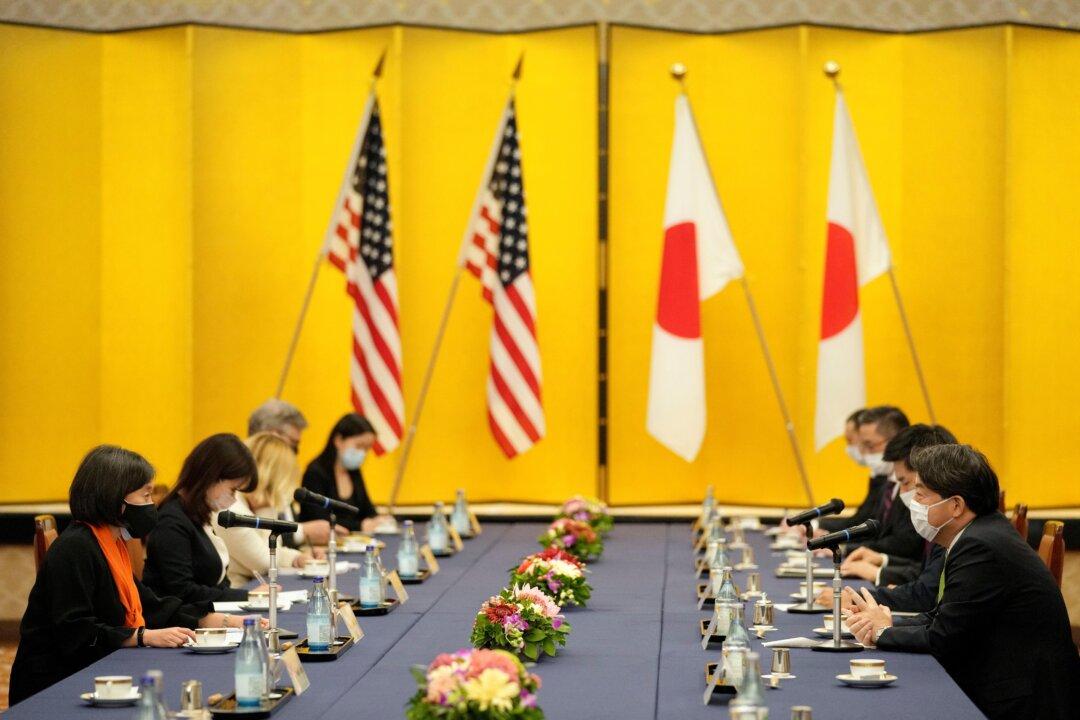The United States, the European Union, and Japan announced on Nov.17 to renew a trilateral partnership to address challenges posed by the non-market policies and practices of third countries.
The U.S. Trade Representative Katherine, European Commission Vice President Valdis Dombrovskis, and Japanese Trade Minister Koichi Hagiuda said they intended to meet in person on the margins of the upcoming World Trade Organization (WTO) Ministerial Conference in Geneva, Switzerland, according to a joint statement.




